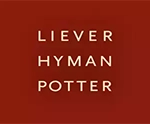From the AAJ News Brief for August 10, 2015.
There are numerous reports about a potentially seismic court ruling that affects how pharma companies discuss off-label use of their products under FDA restrictions. A Federal court held that the Food and Drug Administration cannot prevent Amarin Pharma Inc. from marketing its fish-oil product for an off-label use, so long as its claims are truthful, according to a Wall Street Journal (8/8, B1, Burton, Subscription Publication, 6.06M) report.
According to the New York Times (8/8, B1, Pollack, Subscription Publication, 12.12M), the decision “could inhibit the ability of the F.D.A. to regulate one aspect of pharmaceutical marketing.” Judge Paul Engelmeyer wrote that the agency “may not bring such an action based on truthful promotional speech alone, consistent with the First Amendment.”
Medical Marketing & Media (8/7, Lee, 1K) reports that the decision “bolsters the pharmaceutical industry’s case against current off-label marketing restrictions.” Moreover, “the case has wider implications for the industry and will likely add force to ongoing efforts to change what are widely considered outdated regulations.”
The Washington Post (8/7, Johnson, 6.76M) Wonkblog reported that “the judge’s decision does require that the off-label promotion of a drug not be misleading,” adding that the decision “also opens up the question of who adjudicates whether unapproved uses of a drug are truthful.”
The AP (8/8, Perrone) reported that according to some lawyers, “other companies could follow a similar path by filing lawsuits in the second circuit.”
Fierce Pharma (8/7, Palmer, 3K) points out that the court’s decision is a preliminary ruling and adds that “it is not clear how big a victory the ruling will be given it came in a lawsuit Amarin brought against the FDA as a defensive move. The FDA had never sued to stop Amarin. And it comes after the FDA has already said most of the material Amarin wants to use for marketing purposes is fine with it anyway.”
Still, a column by Forbes (8/7, 7.42M) contributor John Osborn, a senior advisor with the international law firm Hogan Lovells, argued that “it’s hard to find any ambiguity in today’s order” and concluded “the long restrained, tightly controlled communication of scientific and medical information…has been loosened.”
A column by Forbes (8/9, 7.42M) contributor Paul Hsieeh, a Denver physician, contends that the decision was an “important legal victory” and calls patients, physicians, and “pharmaceutical companies creating innovative new products” the “winners” in this case.
Gizmodo (8/7, Novak, 1.06M) reports that “the federal case has huge implications for the future of prescription drugs in the US and could weaken the FDA’s power to regulate how drugs are marketed.” The report adds that “just last year GlaxoSmithKline was ordered to pay a $105 million fine for off label promotion of its asthma and anti-depressant medications,” but last week’s “ruling has the potential to hinder such prosecutions against drug companies in the future.”
In a press release (8/7), Amgen said it “plans to begin promotional activities consistent with the opinion as soon as possible” and said that the court “decision opens more direct and effective paths to communicate truthful and non-misleading information about Vascepa clinical trial results and the state of science relevant to the potential of Vascepa to reduce the risk of cardiovascular disease.”
Also reporting are Bloomberg News (8/8, Edney, 2.66M), Reuters (8/7, Pierson), and TIME (8/7, Zorthian, 19.55M).
At Liever, Hyman & Potter we represent clients who suffer injury or death from prescription drug overdoses and from improper use of prescription and non- prescription medication. We have been around since 1959 serving our clients in Eastern and Central Pennsylvania.

